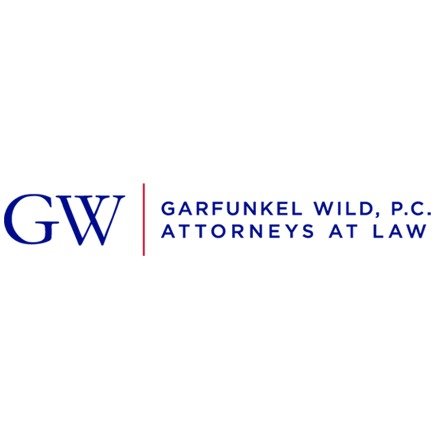Best Business Lawyers in New York
Share your needs with us, get contacted by law firms.
Free. Takes 2 min.
Or refine your search by selecting a city:
List of the best lawyers in New York, United States
United States Business Legal Questions answered by Lawyers
Browse our 1 legal question about Business in United States and read the lawyer answers, or ask your own questions for free.
- How do I legally protect my idea before selling or licensing it to a company?
- I have a makeup product idea that I want to sell or license, not the product itself. It is influenced by a product that was recently launched. Therefore, I want to sell/license to the company that launched said product. After some research, I contacted a patent attorney who explained that... Read more →
-
Lawyer answer by P.O OHIKHENA & Co
Good day,A patent will not be applicable since it's still an idea. You can go into an MOU(Memorandum of understanding) with the said company and also an NDA.You can contact me for my insight. Visit our profile and send us...
Read full answer
United States Business Legal Articles
Browse our 2 legal articles about Business in United States written by expert lawyers.
- NY 2026 Corp Tax: Thresholds & Franchise
- For tax years beginning on or after January 1, 2026, New York businesses will only be required to make estimated tax payments if their expected New York tax (including any MTA surcharge) is at least $5,000, up from $1,000. Many small and some mid-sized New York corporations and S corporations... Read more →
- Texas AI Compliance 2026 United States Data Privacy Rules
- By 2026, Texas agencies and many businesses that build, host, or support AI tools for government or consumer-facing decisions will face stricter disclosure and anti-discrimination requirements. Texas is pairing its new data privacy framework (Texas Data Privacy and Security Act) with AI-specific rules that target "algorithmic discrimination" in areas like... Read more →
About Business Law in New York, United States
Business law in New York covers the legal issues and regulations affecting commercial activities within the state. This area includes forming and operating different types of business entities, complying with state and local regulations, navigating contracts, handling employment matters, and managing disputes. New York, housing one of the largest and most influential business centers in the world - New York City - has a distinct and comprehensive set of laws governing the business environment. Business law ensures companies can operate legally, resolve disputes if they arise, and protect both entrepreneurs and consumers.
Why You May Need a Lawyer
Many individuals and organizations seek legal advice when navigating business activities in New York. You might need a lawyer if:
- You are starting a new business and need guidance on choosing the right legal structure
- You want to draft or review contracts, including leases, vendor agreements, or partnership agreements
- You are involved in a business dispute such as a breach of contract, partnership disagreement, or intellectual property issue
- Your business is facing regulatory compliance challenges, such as licensing, zoning, or labor law compliance
- You plan to buy or sell a business, merge with another company, or acquire significant assets
- You are hiring or terminating employees and need to understand your obligations under state and federal law
- You wish to protect your trademarks, copyrights, or patents
- Your business is facing financial distress or bankruptcy considerations
- You are seeking investment, financing, or looking to offer shares in your business
- You need help with tax planning or disputes with the IRS or state tax authorities
Local Laws Overview
Doing business in New York involves compliance with several specific laws and regulations, including:
- Business Entity Formation: New York allows for several business entities, such as sole proprietorships, partnerships, limited liability companies (LLCs), and various forms of corporations. Each entity comes with different filing requirements, ongoing compliance obligations, and tax treatments.
- Licensing Requirements: Certain businesses must obtain state or local permits or licenses to operate legally, which can differ by industry and location within the state.
- Employment Law: New York has its own labor laws in addition to federal standards, covering minimum wage, overtime, anti-discrimination regulations, and employee rights. These laws are often stricter than federal requirements.
- Taxation: Businesses must comply with New York’s taxation rules, including state corporate or personal income taxes, sales tax, and local tax obligations.
- Commercial Leases and Real Estate: Commercial real estate is subject to specific state statutes and local ordinances. Commercial leases, zoning laws, and property rights can all impact your business operations.
- Contract Law: New York contract law governs how agreements are formed, interpreted, and enforced, which is critical when dealing with customers, clients, or other businesses.
- Dispute Resolution: New York has a robust court system for resolving business disputes, including the Commercial Division of the New York Supreme Court, which specializes in complex business litigation.
Frequently Asked Questions
What is the best legal structure for my business in New York?
The best structure depends on your business goals, tax considerations, liability concerns, and size. Common options include sole proprietorships, partnerships, LLCs, and corporations. Each has advantages and disadvantages. Consulting with a lawyer can help determine the best fit.
Do I need a license to start a business in New York?
Many businesses require state or local licenses, depending on their industry and location. Examples include food service permits, professional licenses, and home occupation permits. Research your specific industry requirements or consult an attorney.
What is the minimum wage for employees in New York?
The minimum wage depends on location and employer size. As of 2024, it ranges from 15 dollars per hour in New York City, Long Island, and Westchester County, to 14 dollars and 20 cents per hour elsewhere in the state, with scheduled increases. Always check for updates.
How do I protect my business name or logo in New York?
Registering a trademark at the federal or state level protects your business name and logo from use by others. You may also need to register your business name with New York State when forming an entity or applying for licenses.
What taxes do New York businesses need to pay?
Business taxes in New York can include income tax (corporate or personal), sales tax, and potential city or local business taxes. The type and amount depend on your business structure, revenue, and location.
What should I include in a business contract?
A business contract should clearly outline each party’s rights and responsibilities, payment terms, timelines, dispute resolution procedures, and remedies for breach. New York contract law governs how these agreements are interpreted and enforced.
How do I legally hire employees in New York?
You must follow federal and state laws regarding hiring, including verifying work eligibility, paying minimum wage, providing required benefits, and adhering to anti-discrimination laws. Certain businesses must also provide state-mandated leave or wage notices.
What is the process for resolving a business dispute in New York?
Disputes can be settled through negotiation, mediation, arbitration, or litigation. New York courts, including the Commercial Division, handle complex business matters. Alternative dispute resolution can sometimes save time and costs.
Do I need an attorney to buy or sell a business in New York?
While not required by law, having an attorney is highly recommended to review agreements, perform due diligence, and ensure compliance with regulatory requirements, especially given the complexity of typical transactions in New York.
How do I dissolve a business in New York?
The process depends on the type of business entity. Generally, you must file dissolution documents with the state, settle debts, notify creditors, and distribute remaining assets according to law or organizational documents.
Additional Resources
If you are seeking further help or information regarding business law in New York, consider the following resources:
- New York State Department of State - Division of Corporations: Manages business entity filings, corporate records, and business certificates
- Small Business Administration (SBA) New York District Office: Provides resources for starting and managing a business, including funding and legal guidance
- New York City Department of Small Business Services: Offers support, training, and guidance for businesses operating in New York City
- New York State Bar Association (NYSBA): Provides legal resources and a lawyer referral service
- Empire State Development: Supports business growth and regulatory compliance statewide
- Internal Revenue Service (IRS) and New York State Department of Taxation and Finance: For tax questions and resources
Next Steps
If you need legal assistance for your business in New York, begin by identifying your specific needs or challenges. Prepare relevant documents and questions in advance to make the consultation productive. You can:
- Consult with a qualified business attorney familiar with New York law
- Contact a local bar association for lawyer referrals
- Reach out to government agencies or business support organizations for guidance
- Review official resources for permitting and compliance requirements
Addressing legal issues early can help protect your business from potential disputes and costly mistakes. A licensed New York business attorney will offer tailored advice to help you manage your obligations and reach your goals with confidence.
Lawzana helps you find the best lawyers and law firms in New York through a curated and pre-screened list of qualified legal professionals. Our platform offers rankings and detailed profiles of attorneys and law firms, allowing you to compare based on practice areas, including Business, experience, and client feedback.
Each profile includes a description of the firm's areas of practice, client reviews, team members and partners, year of establishment, spoken languages, office locations, contact information, social media presence, and any published articles or resources. Most firms on our platform speak English and are experienced in both local and international legal matters.
Get a quote from top-rated law firms in New York, United States — quickly, securely, and without unnecessary hassle.
Disclaimer:
The information provided on this page is for general informational purposes only and does not constitute legal advice. While we strive to ensure the accuracy and relevance of the content, legal information may change over time, and interpretations of the law can vary. You should always consult with a qualified legal professional for advice specific to your situation.
We disclaim all liability for actions taken or not taken based on the content of this page. If you believe any information is incorrect or outdated, please contact us, and we will review and update it where appropriate.
Browse business law firms by service in New York, United States
New York, United States Attorneys in related practice areas.
Browse business law firms by city in New York
Refine your search by selecting a city.
















